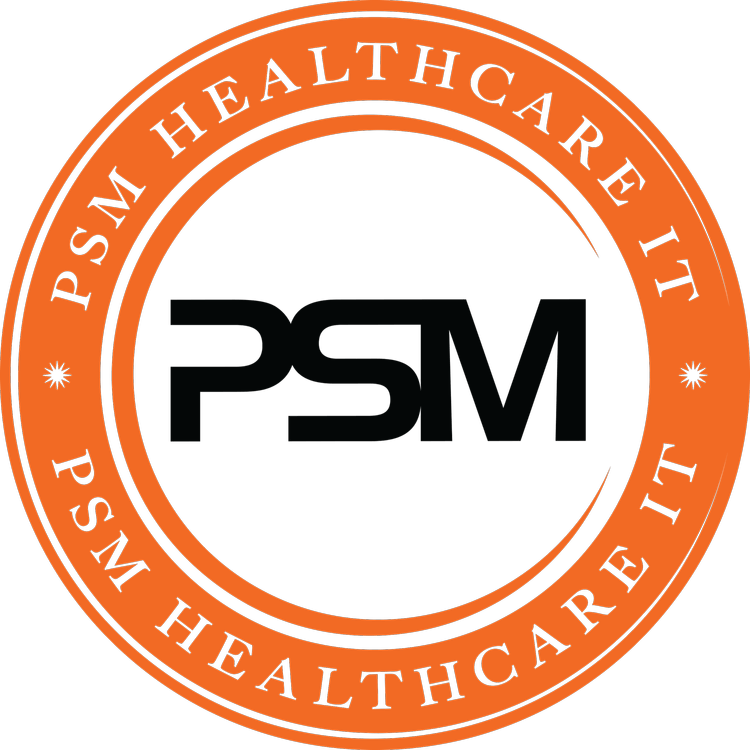Did you know that only 51% of healthcare organizations in Oakland are fully compliant with HIPAA regulations for IT security? Ensuring HIPAA compliance in the digital age is crucial for health care providers to safeguard patient data, individually identifiable health information, and avoid hefty fines. From understanding the key requirements to implementing robust security measures, we’ve got you covered. Stay informed and protect your practice from potential breaches and legal repercussions by mastering HIPAA compliance in IT.
Stay tuned for expert insights, practical tips, and actionable steps to streamline your HIPAA compliance efforts effectively. Let’s navigate the complex world of healthcare data security together!
Key Takeaways

-
Understand the importance of HIPAA compliance in IT to protect sensitive patient health information and act.
-
Take proactive steps to avoid common HIPAA violations like unauthorized access to patient records.
-
Implement robust cybersecurity measures in healthcare IT systems to safeguard against data breaches.
-
Stay informed about local regulations in Oakland to ensure compliance with specific requirements.
-
Be aware of the risks associated with non-compliance, including hefty fines and reputational damage.
-
Seek annual support for compliance to stay updated on evolving regulations and maintain a secure IT environment.
Overview of HIPAA Compliance
Understanding HIPAA Regulations
HIPAA regulations include privacy and security rules to protect patient information, promoting confidentiality. Covered entities, like healthcare providers, must comply to ensure data safety. Non-compliance can result in hefty fines and damage to reputation.
Importance of Patient Information Security
Safeguarding patient data is crucial for maintaining trust and confidentiality in healthcare settings. Healthcare providers are legally obligated to protect sensitive information from unauthorized access. Secure patient information leads to improved healthcare outcomes by ensuring accurate treatment.
Scope of HIPAA Programs
HIPAA compliance encompasses various programs and policies aimed at safeguarding patient data. Covered entities, such as hospitals and insurance companies, must adhere to these regulations strictly. Organizations can customize HIPAA programs to address their unique operational requirements.
Common HIPAA Violations
Data Breach Awareness
Healthcare organizations must address the rising frequency of data breaches to protect patient information. A data breach can result in severe consequences such as financial penalties and damage to reputation. Implementing proactive measures like encryption and regular security audits can help prevent data breaches.
Improper Document Disposal
Secure disposal methods for sensitive documents are crucial to avoid HIPAA violations. Common mistakes during document disposal, such as tossing papers without shredding, can lead to breaches. Best practices include shredding documents, implementing secure bins, and training staff on proper disposal procedures.
Device Loss Concerns
Lost or stolen devices with patient information pose significant risks for HIPAA compliance. Securing devices through encryption, password protection, and remote wiping can mitigate risks. Reporting lost devices promptly is critical to limit exposure of sensitive patient data.
Achieving HIPAA Compliance
Conducting Risk Assessments
Conduct thorough risk assessments regularly to pinpoint vulnerabilities within the organization’s processes and systems. By identifying these weak spots, organizations can address them effectively. Regular risk assessments are crucial in maintaining compliance with HIPAA regulations. Involving all staff members in this process ensures a comprehensive evaluation of potential risks.
-
Involving all staff members in risk assessments enhances comprehensive evaluation.
-
Regular risk assessments are vital for maintaining compliance with HIPAA regulations.
Implementing Security Training
Advocate for comprehensive security training programs to educate all employees on HIPAA policies and procedures. Ongoing training sessions help reinforce compliance standards and increase security awareness among staff members. Tailored training sessions for different roles within the organization ensure that each employee understands their specific responsibilities regarding HIPAA compliance.
-
Comprehensive security training programs educate employees on HIPAA policies.
-
Tailored training sessions ensure that each employee understands their specific responsibilities.
Understanding the Security Rule
The HIPAA Security Rule aims to protect electronic health information by setting specific standards for safeguarding this data. It mandates administrative, physical, and technical safeguards to ensure the integrity, confidentiality, and availability of electronic protected health information (ePHI). Documenting compliance efforts related to the Security Rule is essential for demonstrating adherence to these standards.
-
The Security Rule mandates administrative, physical, and technical safeguards for protecting ePHI.
-
Documenting compliance efforts is crucial for demonstrating adherence to the Security Rule.
Cybersecurity in Healthcare
Vulnerability Scanning
Vulnerability scanning involves identifying security weaknesses within a system or network. It plays a crucial role in proactively detecting potential vulnerabilities before they are exploited. Regular vulnerability scans are essential for maintaining HIPAA compliance and ensuring the security of electronic healthcare information.
-
Vital role in identifying weaknesses
-
Proactive approach to security
-
Helps prioritize remediation efforts effectively
Penetration Testing
Penetration testing is a simulated cyberattack that evaluates security defenses. It is crucial for assessing the effectiveness of security measures and uncovering hidden vulnerabilities. Unlike vulnerability scanning, penetration testing goes beyond identification to simulate real-world attacks.
-
Evaluates security defenses
-
Discovers hidden vulnerabilities
-
Simulates real-world cyberattacks
Cyber Threats in Healthcare
Healthcare organizations face various cyber threats, including ransomware attacks and data breaches. These threats can have severe consequences on patient care and the confidentiality of protected healthcare information. To mitigate risks, health care providers must implement robust security measures and regularly update their systems.
-
Common threats: ransomware, data breaches
-
Impact on patient care and data security
-
Importance of advanced security measures
Local Regulations in Oakland
Specific Requirements
Healthcare providers in Oakland must comply with specific requirements under HIPAA, such as safeguarding patient information and ensuring secure electronic transactions. Understanding both federal and state regulations is crucial to avoid penalties. Tailored compliance strategies are essential based on organizational size and type.
-
Specific Compliance Requirements:
-
Safeguard patient information
-
Ensure secure electronic transactions
-
-
Importance of Understanding Regulations:
-
Avoid penalties
-
Ensure data security
-
Local Enforcement Agencies
Local agencies in Oakland responsible for enforcing HIPAA compliance include the California Department of Public Health and the California Department of Health Care Services. These agencies play a vital role in investigating complaints and breaches, ensuring healthcare providers adhere to regulations. Collaboration with local enforcement agencies is key to achieving better compliance outcomes.
-
Local Enforcement Agencies:
-
California Department of Public Health
-
California Department of Health Care Services
-
-
Role of Agencies:
-
Investigate complaints and breaches
-
Ensure adherence to regulations
-
Compliance Support Resources
Healthcare providers can access various resources to achieve HIPAA compliance, including consultants and IT service providers specializing in healthcare data security. Utilizing online training and workshops is crucial for staff education on compliance practices.
-
Available Resources:
-
Consultants specializing in healthcare data security
-
IT service providers supporting compliance efforts
-
-
Role of Training:
-
Educate staff on compliance practices
-
Enhance data security measures
-
Risks of Non-Compliance
Legal Penalties
Non-compliance with HIPAA regulations can result in significant legal penalties, including hefty fines and sanctions. Violations may lead to fines ranging from $100 to $50,000 per incident, depending on the severity. Factors influencing penalties include the extent of the violation, the organization’s compliance history, and the level of negligence demonstrated.
Failure to comply with HIPAA regulations not only incurs financial consequences but also jeopardizes an organization’s reputation. It is crucial for healthcare providers to prioritize compliance to mitigate legal repercussions. Implementing robust policies, conducting regular audits, and providing staff training are essential steps to ensure adherence to HIPAA guidelines.
Financial Consequences
The financial implications of non-compliance with HIPAA can be severe, impacting organizations financially in various ways. Breaches resulting from non-compliance can lead to substantial costs, including fines imposed by regulatory bodies and expenses associated with legal proceedings. Legal fees incurred during investigations and potential lawsuits further add to the financial burden.
Moreover, the long-term financial impact of non-compliance extends beyond immediate penalties. Organizations risk losing patient trust, which can have detrimental effects on their reputation and bottom line. Patients are more likely to seek services elsewhere if they feel their privacy and data security are compromised, leading to revenue loss and decreased market share.
Reputational Damage
HIPAA violations not only carry legal and financial consequences but also pose a significant threat to an organization’s reputation. Breaching patient confidentiality erodes trust in healthcare providers and can tarnish their image in the eyes of the public. The loss of reputation can result in reduced patient loyalty, negative publicity, and potential boycotts by consumers.
To safeguard against reputational damage, organizations must prioritize HIPAA compliance as a fundamental aspect of their operations. By investing in robust data security measures, ensuring staff members are well-trained in privacy protocols, and conducting regular risk assessments, healthcare providers can demonstrate their commitment to protecting patient information and maintaining trust.
Annual Support for Compliance
Regular Audits
Regular audits are crucial for ensuring ongoing compliance with HIPAA regulations in Oakland. Conduct both internal and external audits to assess security measures. These audits help identify areas needing improvement, enhancing overall data protection.
-
Internal audits involve reviewing in-house procedures to ensure they align with HIPAA standards.
-
External audits bring in third-party experts to provide an unbiased evaluation of compliance efforts.
Audits play a vital role in maintaining HIPAA compliance by uncovering vulnerabilities and addressing them promptly. By conducting thorough audits, organizations can mitigate risks associated with non-compliance.
Ongoing Training Programs
Implementing ongoing training programs is essential to keep staff informed about HIPAA requirements. Continuous education ensures employees stay updated on compliance changes. Engaging training methods, such as interactive workshops and simulations, enhance learning retention and application.
-
Training programs should cover HIPAA policies, procedures, and best practices regularly.
-
Regular training sessions foster a culture of compliance within the organization, reducing the likelihood of violations.
Training helps employees understand their roles in safeguarding patient information and maintaining confidentiality. By investing in continuous education, organizations demonstrate their commitment to upholding HIPAA standards.
Continuous Monitoring
Continuous monitoring of systems and processes is critical to detect and respond to compliance issues promptly. Real-time monitoring enables swift identification of security incidents, preventing data breaches. Automated tools streamline monitoring efforts, providing real-time alerts for potential threats.
-
Automated monitoring tools offer 24/7 surveillance of network activities, flagging any suspicious behavior.
-
Regular system checks and audits ensure that security measures are up-to-date and effective.
Frequently Asked Questions
Common Concerns
Organizations often worry about the complexity and cost of achieving HIPAA compliance. Many fear that compliance efforts will be too onerous and expensive to implement. However, with proper planning and strategies, compliance can be manageable and cost-effective.
e misconceptions revolve around the belief that HIPAA compliance is a one-time task rather than an ongoing process. Organizations may also mistakenly think that compliance is only necessary for large healthcare providers, neglecting the fact that individual practices must also adhere to regulations.
Clarifying Misconceptions
It’s crucial to dispel myths surrounding HIPAA regulations to prevent organizations from overlooking their responsibilities. Contrary to common belief, HIPAA compliance is not a one-size-fits-all approach but requires tailored solutions based on each organization’s unique needs.
The reality is that HIPAA compliance is a continuous journey that demands regular assessments and updates to align with changing requirements. By addressing misconceptions head-on, organizations can better understand the importance of compliance and the benefits it brings in safeguarding patient information.
Additional Resources
-
HIPAA Journal: Offers up-to-date news and insights on HIPAA regulations.
-
HHS.gov: Provides official guidance and resources for understanding HIPAA requirements.
-
HealthIT.gov: Offers tools and training materials to support HIPAA compliance efforts.
Staying informed about regulatory changes is essential for maintaining compliance. By regularly referring to reputable sources and seeking guidance from industry experts, organizations can stay ahead of evolving compliance standards.
Networking with peers in the healthcare industry can also provide valuable insights and support in navigating complex compliance challenges. Sharing experiences and best practices with fellow professionals can enhance organizations’ understanding of HIPAA regulations.
Summary
In the world of healthcare, HIPAA compliance is non-negotiable. By understanding the common violations, achieving and maintaining compliance, addressing cybersecurity, and staying informed about local regulations in Oakland, you can safeguard sensitive data and protect your patients’ privacy. The risks of non-compliance are severe, emphasizing the importance of annual support to ensure you meet all requirements and avoid costly penalties. Remember, compliance is not just a one-time task; it’s an ongoing commitment to the security and trust of your patients.
Take proactive steps today to secure your IT systems, educate your staff, and prioritize HIPAA compliance. Your dedication to data protection not only keeps you in line with the law but also builds a reputation of reliability and professionalism in the healthcare industry. Stay informed, stay compliant, and keep your focus on what truly matters – the well-being of your patients.
Frequently Asked Questions
Is HIPAA compliance mandatory for IT companies in Oakland?
Yes, HIPAA compliance is mandatory for IT companies in Oakland that handle protected health information (PHI). Compliance ensures data security and privacy protection for patients’ sensitive information.
What are the consequences of HIPAA violations in Oakland?
HIPAA violations in Oakland can lead to severe penalties, including fines ranging from $100 to $50,000 per violation. Organizations may face reputational damage, legal actions, and even criminal charges for serious breaches.
How can IT companies in Oakland achieve HIPAA compliance?
IT companies in Oakland can achieve HIPAA compliance by conducting risk assessments, implementing security measures like encryption and access controls, providing staff training on HIPAA regulations, and regularly auditing their systems for compliance.
What cybersecurity measures, including HIPAA requirements, are crucial for healthcare organizations in Oakland to prevent HIPAA violations?
Healthcare organizations in Oakland should prioritize measures such as regular security assessments, employee training on phishing attacks, multi-factor authentication for access control, encryption of sensitive data, and prompt patching of software vulnerabilities to enhance cybersecurity defenses.
Are there specific local regulations in Oakland related to healthcare data protection, HIPAA violation, Information Practices Act, individual, and standardization?
Yes, Oakland may have additional local regulations related to healthcare data protection that organizations need to comply with in addition to HIPAA. It’s essential for healthcare entities to stay informed about both federal and local regulations to ensure full compliance.





